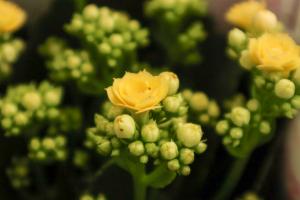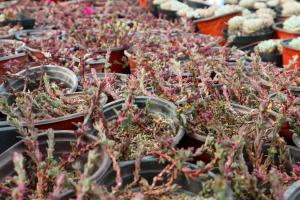Is Planter Dishwater Alright for the Plant?
As an environmentally-conscious gardener, you may be looking for ways to reduce the amount of water used for your plants. One solution is to reuse water leftover from various household tasks, such as washing dishes. However, before you start using planter dishwater for your plants, it's important to understand the potential risks and benefits.
The Benefits of Using Dishwater for Plants
First, let's look at the potential benefits of using planter dishwater for your plants. Reusing water in this way helps to conserve water resources and reduce overall water usage. Dishwater contains nutrients and minerals that plants need for growth, such as phosphorus, nitrogen, and potassium. It can also help to maintain the pH balance of the soil, making it more conducive to plant growth.
Using planter dishwater is also a great way to repurpose waste water and reduce your overall carbon footprint. By reusing water in this way, you're helping to reduce the amount of water that needs to be treated and processed by municipal wastewater treatment plants, which can have a significant impact on the environment.
The Risks of Using Dishwater for Plants
Despite the potential benefits, there are also potential risks associated with using planter dishwater for your plants. One of the biggest concerns is the presence of contaminants in the water. Dishwater can contain food particles, grease, and soap residue, all of which can be harmful to plants if they accumulate in the soil over time.
In addition, dishwater can also contain harmful chemicals, such as bleach or cleaning agents, which can harm plant growth and affect the quality of the soil. These chemicals can also leach into the surrounding environment, potentially contaminating groundwater sources and causing harm to wildlife and other organisms.
How to Safely Use Dishwater for Plants
If you're considering using planter dishwater for your plants, it's important to take some precautions to ensure that you're doing so in a safe and responsible manner. Here are some tips:
Use biodegradable soap and minimize the amount of soap used to reduce the risk of contamination
Avoid using dishwater that has come into contact with meat or dairy products
Use shallow dishes or containers to avoid overwatering and encourage proper drainage
Monitor the soil regularly for signs of contamination and adjust your watering practices as needed
By taking these precautions, you can safely and responsibly use planter dishwater for your plants and help to conserve water resources in the process.
Conclusion
While using planter dishwater for plants may seem like a simple and sustainable solution, it's important to understand the potential risks and benefits before you start. By taking some simple precautions and being mindful of the potential risks, you can safely and responsibly use planter dishwater for your plants and help to conserve water resources in the process.

 how many times do yo...
how many times do yo... how many planted tre...
how many planted tre... how many pine trees ...
how many pine trees ... how many pecan trees...
how many pecan trees... how many plants comp...
how many plants comp... how many plants can ...
how many plants can ... how many plants and ...
how many plants and ... how many pepper plan...
how many pepper plan...
































